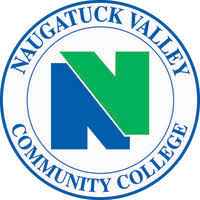College Degree Levels: A Complete Guide
Explore College Degree Levels: A Complete Guide. Learn about associate, bachelor’s, master’s, and doctoral degrees, their requirements, and career paths.
Deciding on the right college degree can be overwhelming, especially with so many options and levels available. Each degree level serves a different purpose, requires different time commitments, and opens doors to various career opportunities. Whether you’re just starting college or considering graduate school, understanding college degree levels can help you make informed decisions about your education and future career. This guide breaks down the major degree levels, their requirements, and the opportunities they provide.
Associate Degrees: The Fast Track
Imagine finishing college in just two years and entering the workforce with a solid foundation. Associate degrees typically take about two years to complete and are offered by community colleges and some universities. They provide foundational knowledge in a field and can prepare students for entry-level jobs or transfer to a four-year bachelor’s program.
Fields like nursing, information technology, and business administration often offer associate degrees. Students complete general education courses along with specialized courses in their area of study. Associate degrees are a cost-effective and time-efficient way to begin a career, especially for those who want to enter the workforce quickly or test their interests before committing to a bachelor’s program.
FAQ: Can an associate degree lead to a bachelor’s? Yes. Many students transfer credits from an associate degree to complete a bachelor’s program.
💡 Tip: Check articulation agreements between community colleges and universities to ensure your credits transfer smoothly.
| Degree Level | Duration | Purpose | Career Opportunities |
|---|---|---|---|
| Associate | 2 years | Entry-level skills, transfer to bachelor’s | Nurse Assistant, IT Support, Administrative Assistant |
Bachelor’s Degrees: Building Expertise
Now picture completing a four-year degree that provides in-depth knowledge in your chosen field. Bachelor’s degrees are the most common undergraduate degrees and serve as a foundation for professional careers or graduate studies. They typically require 120 credit hours, combining general education, major-specific courses, and electives.
Popular majors include business, engineering, biology, and education. Bachelor’s degrees prepare students for entry-level professional roles and often serve as prerequisites for master’s or doctoral programs. Graduates gain critical thinking, communication, and technical skills, making them competitive in the job market. Many careers, from management positions to specialized technical roles, require at least a bachelor’s degree.
FAQ: Can I work with only a bachelor’s degree? Yes. Many careers, including engineering, teaching, and business, are accessible with a bachelor’s.
💡 Tip: Participate in internships, research, or study abroad programs to gain practical experience and enhance your resume.
Master’s Degrees: Advanced Knowledge and Specialization
Imagine deepening your expertise in a specific area and increasing your career potential. Master’s degrees typically require 1–2 years beyond a bachelor’s and involve advanced coursework, research, or professional practice. They allow students to specialize in fields like business administration (MBA), engineering, education, or social work.
Master’s programs often include a thesis, capstone project, or professional internship. Graduates can pursue higher-level roles, management positions, or specialized careers requiring advanced knowledge. Many students use a master’s degree to pivot to a new field or enhance their earning potential.
FAQ: Do I need a master’s to advance in my career? Not always. While a master’s can increase opportunities, experience and certifications also play significant roles.
💡 Tip: Consider programs that offer part-time, online, or professional formats if you plan to work while studying.
Doctoral Degrees: Expert-Level Education
Now picture becoming a recognized expert in your field. Doctoral degrees, such as PhDs, EdDs, or professional doctorates, represent the highest level of academic achievement. They typically require 3–6 years beyond a master’s degree and involve original research, a dissertation, and extensive coursework.
Doctoral graduates pursue careers in academia, research, or high-level professional practice. They develop advanced analytical, research, and leadership skills. While demanding, doctoral programs offer the opportunity to contribute new knowledge to your field and achieve recognition as an expert.
FAQ: Are doctoral degrees necessary for all professions? No. They are essential for research and academic careers, but many professional roles do not require a doctorate.
💡 Warning: Doctoral programs require significant time, effort, and dedication. Ensure alignment with your career goals before committing.
Professional Degrees: Specialized Career Paths
Finally, imagine preparing for careers that require licensure or specialized practice. Professional degrees include law (JD), medicine (MD), dentistry (DDS), pharmacy (PharmD), and others. These programs are usually pursued after a bachelor’s and focus on practical skills, clinical experience, and professional competency.
Graduates enter licensed professions with specific responsibilities and high earning potential. Professional degrees often require standardized exams, internships, and residency or clerkship experiences. They combine academic knowledge with hands-on practice to prepare students for real-world challenges in regulated professions.
FAQ: Can I enter a professional degree program without a bachelor’s? Some programs allow direct entry after certain prerequisites, but most require a bachelor’s degree.
💡 Tip: Research accreditation and licensure requirements early to ensure your program qualifies you for professional practice.
Latest Blog and Articles

Connecticut State Community College (Naugatuck Valley)
Connecticut State Community College (Naugatuck Valley) General Information Reviews Connecticut State Community College (Naugatuck Valley) is…

Herzing University (Akron) | Cost and Degrees
Herzing University (Akron) | Cost and Degrees General Information Reviews Herzing University (Akron) is recognized for…

The Ocean Corporation
The Ocean Corporation General Information Overview The Ocean Corporation is a vocational and career-focused institution that…

Calvin R. McCullough Middle School
Calvin R. McCullough Middle School General Information Overview Calvin R. McCullough Middle School, situated in New…

Cesar Chavez Middle School
Cesar Chavez Middle School General Information Overview Cesar Chavez Middle School is a dynamic and inclusive…

Princess Institute of Beauty
Princess Institute of Beauty General Information of Princess Institute of Beauty Overview of Princess Institute of…
